From Dream to Drive – Choose The Right Campervan
Part 3 of 4 – Buying & building a campervan for conversion? We’ll guide you from finding the right van, avoiding common pitfalls & creating your dream campervan
4/15/20258 min read
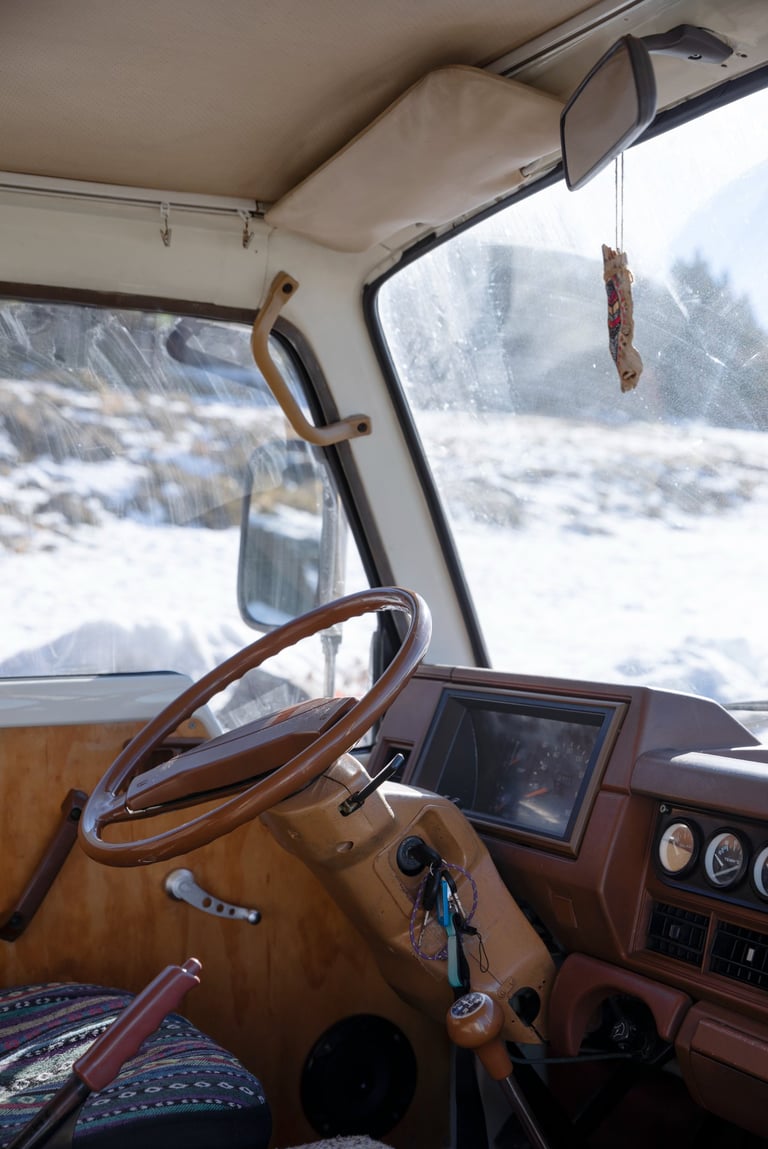

1. Consider how you’ll use the van
Weekend adventures, long road trips, or full-time vanlife? Your lifestyle plans should guide your van choice. Smaller vans are ideal for stealth camping and urban environments, while larger vans offer more space for off-grid setups, bathrooms, or workstations.
Pro tip: Make a list of must-haves — fixed bed, kitchen, toilet, off-grid power, standing height — and compare it to the layout space of the vans you’re considering.
2. Rear-wheel drive vs. front-wheel drive
Front-wheel drive vans typically have lower floors, giving you more interior height, and tend to be lighter and more fuel-efficient. Rear-wheel drive vans often have better traction, especially when fully loaded, and may be more suitable for rugged terrain or winter driving.
Pro tip: If you plan on driving in snowy conditions or tackling mountain roads, rear-wheel drive (or even all-wheel drive) might be worth it.
Choosing the Right Van for Your Campervan Conversion
Your guide from intermediate tips to pro-level advice
So, you've decided to take your vanlife dreams to the next level. Maybe you've already done a basic campervan build or two and now you’re ready to go a bit further — more custom work, better long-term usability, and perhaps even all-season travel. Whether you're building your second van or just have more experience under your belt, these tips are designed to help you avoid common pitfalls and level up your campervan conversion.
1. Tips for First-Time Buyers
If this is your first time buying a van to convert into a camper, the process can feel a bit overwhelming. Here are some quick tips to help you get started with confidence.
2. Think about common models & spare parts
Some van models are more common in the UK and Europe, making it easier (and cheaper) to find spare parts or get repairs done. Ford Transit, Mercedes Sprinter, VW Crafter, and Peugeot Boxer are all popular for campervan conversions.
Pro tip: Join online vanlife forums or Facebook groups for your chosen model — you’ll find loads of tips, ideas, and help from others who’ve done similar builds.
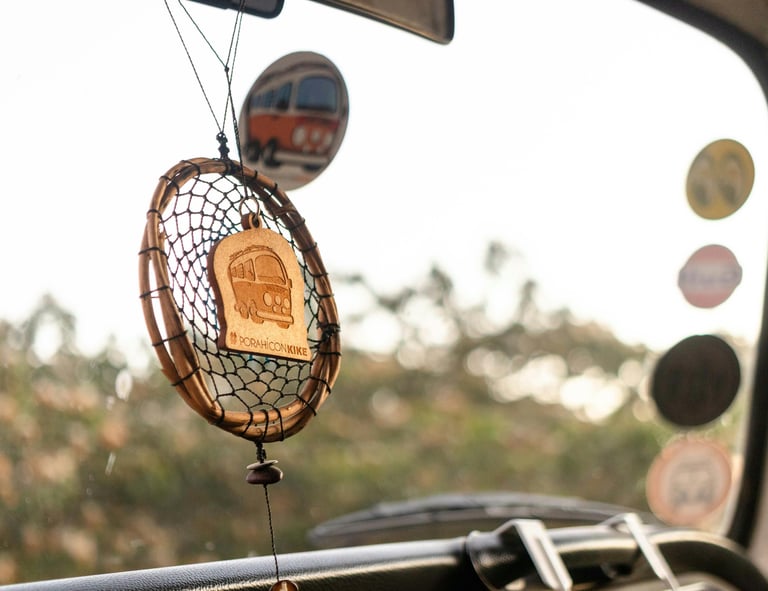

Choosing the Right Van for Your Campervan Conversion
When it comes to converting your own campervan, the options can feel endless — and a little overwhelming. Should you go for a high-roof panel van for standing room, or a compact vehicle that’s easier to park in busy cities?
Do you need loads of storage space for gear, pets or future adventures?
In this guide, we break down some of the most popular vans used for campervan conversions in the UK, along with some alternative ideas that might surprise you. From Land Rovers with rooftop tents to Luton box vans and even converted buses, the truth is: vanlife isn’t about the perfect vehicle — it’s about the lifestyle you want to live. Your dream to hit the road matters more than what you drive.
Finding the Best Van for Your Campervan Conversion
So, you've made the decision. You're ready to explore vanlife — not just as a weekend escape but as a real lifestyle shift. Maybe you’ve binge-watched a few YouTube van builds, seen full-scale custom conversions with everything measured to the millimetre, and now you're wondering how to start without owning a garage full of tools.
Don’t worry, whether you’re going full DIY or looking for a semi-converted kit van, there’s a solution out there for you. Pre-designed conversion kits are now available for many vans and even small vehicles, helping you save time and effort while still making it your own.
But before you rush to buy, it’s essential to ask yourself: What’s your version of vanlife?
Start by Asking Yourself These Key Questions:
✔ Do you need standing space inside your campervan?
✔ Would you prefer a smaller van for easier parking in cities?
✔ How much storage space do you need for your gear—or maybe a future four-legged travel buddy?
Your answers will help you determine which van suits your personal travel needs.
Check the Roof Height
The roof height is a crucial factor if you plan to spend a lot of time in your campervan or if standing up inside is important to you. Vans come in different roof height classifications (H1, H2, H3), with H2 and H3 offering standing room—an advantage for comfort and practical tasks such as cooking, changing clothes, and moving freely.
Helpful Tip:
Always test standing inside the van before purchasing. If you can’t stand upright, consider raising the roof or opting for a higher-roof model. Not only does a taller roof provide better ventilation, but it also makes the interior feel more open and less claustrophobic.
Campervan Size & Style – What Suits You Best?
If you dream of standing tall and dancing while making your morning coffee, a high-roof van like a Mercedes Sprinter or Fiat Ducato is a great choice. But if you're after manoeuvrability and stress-free city parking, consider something more compact—like a Renault Trafic or Volkswagen Transporter.
And remember: the best campervan is the one that suits you. For many, vanlife is about freedom, creativity, and flexibility. So why not think outside the box?
We’ve seen people turn everything from old ambulances to decommissioned fire trucks into stunning homes on wheels. There’s really no limit—your imagination is the only boundary.


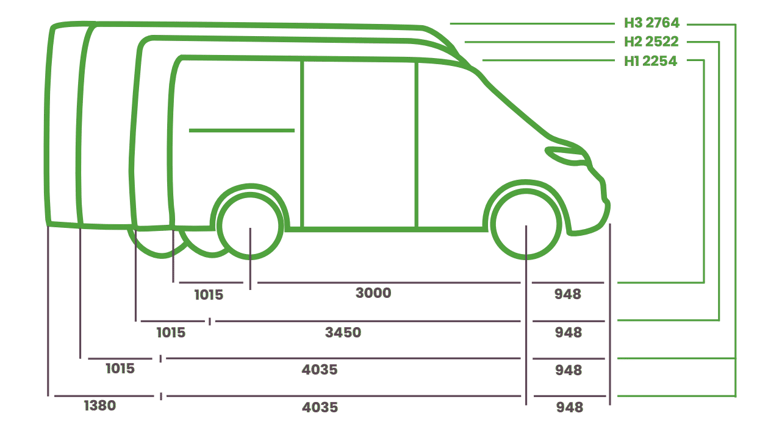

What Do You Need in a Campervan?
Before diving into van models, take a moment to consider your own needs and travel style. Are you a weekend warrior or planning full-time life on the road? City explorer or mountain adventurer? Solo traveller or with a partner, dog or surfboard in tow?
Ask yourself:
Do I want to stand up inside my van?
Will I be parking in city centres or off-grid spots?
How much storage do I need?
Am I building solo or with help?
What’s my realistic budget for the van and the build?
The answers will help guide you toward the right type of van for your conversion.
Check the roof height
Planning to spend a lot of time in your campervan? Want to stand up while cooking or getting changed? Then roof height matters. Vans typically come in low (H1), medium (H2), or high (H3) roofs — H2 and H3 options let most people stand upright.
Pro tip: Try standing inside the van before buying. If you can’t stand comfortably, consider a higher roof model or even a pop-top upgrade. A taller roof also makes the space feel more open and less claustrophobic.
Vanlife Isn’t One-Size-Fits-All
Let’s take our friends as an example — a couple travelling across Europe with their dachshund in a Land Rover and a rooftop tent. They’ve chosen maximum off-road freedom over indoor space, camping under the stars in the most remote locations. That’s vanlife too.
And we've met others who’ve transformed old ambulances, fire engines or even delivery vans into incredible homes on wheels. Your perfect van might be hiding in plain sight on a used car website!
The Most Popular Vans for Converting in the UK
Here's a look at some of the most commonly converted vans in the UK vanlife community — each with their own strengths, depending on your needs.
1. Mercedes Sprinter
✔️ Great for full-time living
✔️ High roof options (ideal for standing)
✔️ Lots of room for storage and creative layouts
❗ Can be pricier to buy and maintain
2. Fiat Ducato / Peugeot Boxer / Citroën Relay
✔️ Boxier shape = easier to convert
✔️ Popular choice in the UK and across Europe
✔️ More affordable than a Sprinter
❗ Interior quality can vary — inspect before buying
3. Volkswagen Transporter (T5/T6)
✔️ Compact and stylish
✔️ Easier to park in cities
✔️ Tons of accessories and community support
❗ Less space if you're planning long-term travel
4. Renault Trafic / Vauxhall Vivaro / Nissan NV300
✔️ Budget-friendly and practical
✔️ Reliable engines and wide availability
❗ Lower roof can limit standing room
5. Ford Transit
✔️ Widely available with many size options
✔️ Easy to service in the UK
✔️ Good balance of price and performance
❗ Check for rust, especially in older models
6. Alternative Options
Luton Vans – flat walls, huge interior, great for creative builds
Minibuses – ready-made windows and seating, ideal for families
4x4s with Rooftop Tents – go-anywhere adventure setup
Converted School Buses – for those who want a rolling cabin!
There's No “Right” Van — Just the Right One for You
The most important thing to remember? There is no perfect van — only the one that fits your lifestyle, budget and dreams. Your campervan conversion can be as custom or as simple as you like. The key is to get out there and make it happen.
No matter what you choose to drive, the open road is waiting.
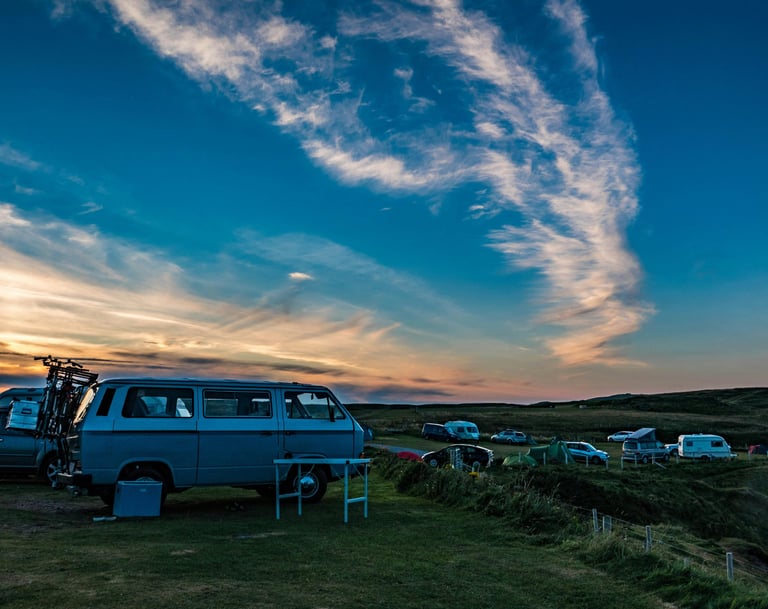

For those with some experience
1. Choose the Right Fuel Type
When selecting your van, consider the fuel type carefully. Diesel is the most common choice for campervans, thanks to its higher torque and better fuel economy over long distances. However, many European cities now restrict access for older diesel vehicles, especially those that don’t meet Euro 6 emissions standards.
Tip:
If you're unsure about diesel, consider a hybrid or fully electric van. These options may cost more upfront but offer better access to Low Emission Zones (LEZ) and are ideal for eco-conscious travellers.
2._Drivetrain and Terrain Capabilities
If your dream vanlife includes exploring remote countryside, navigating gravel roads, or wild camping in nature, then drivetrain matters. Front-wheel drive (FWD) vans are suitable for most roads, but if you're venturing into more rugged terrain, four-wheel drive (4WD) is worth considering.
Tip:
Always test drive the van on mixed terrain if possible. Keep in mind that 4WD vans require more maintenance and may be pricier to repair.
3. Insulation and Heating Systems
Planning to travel during winter or explore colder climates? Good insulation and a reliable heating system are essential. Poor insulation leads to heat loss, condensation, and more energy consumption.
Tip:
Fully insulate the walls, ceiling and floor using reflective foil or insulation foam. Install a diesel heater or gas-powered heating system for extra comfort during colder nights.
4. Emission Zones & Travel Regulations
Low Emission Zones (LEZ) are increasingly common across European cities. Vehicles not meeting required emissions standards are either fined or denied entry and yes, enforcement is often automatic via number plate recognition.
Tip:
Always check your van’s emissions class (e.g., Euro 5 or Euro 6) before purchasing. If you plan to travel internationally, check LEZ policies in your destination countries. [Click here for our app recommendations to help with this].


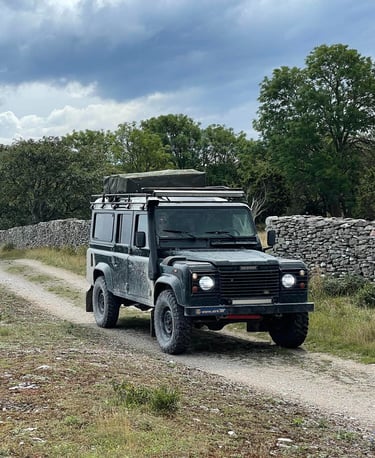

For experienced buyers and converters
1. Payload and Load Capacity
Your van will gain significant weight during the build: solar panels, batteries, woodwork, water tanks, it adds up. Exceeding your van’s legal payload can lead to safety issues, higher fuel consumption, and even fines.
Tip:
Look for a van with a payload of at least 800 kg (or more, depending on your build plans). Check the van’s VIN plate or V5C document to confirm the maximum load.
2. Roof Vents and Ventilation Systems
Proper airflow is a must for comfort, cooking, and preventing condensation. Roof vents, especially those with fans, keep your van fresh and help regulate indoor temperature.
Tip:
Opt for a vent with a reversible fan function, it can push hot air out or pull cool air in. And don’t forget built-in insect screens for summer nights!
Part 4 - Mastering the Van Purchase:
Bring Out Your Inner Negotiator
You’ve reached the final part of our campervan-buying journey, and it’s a big one. You've done your research, you've figured out what to look for, and now it's time to make the purchase.
This is where you shift from vanlife dreamer to savvy buyer.
We’ll walk you through how to inspect like a pro, ask the right questions, negotiate like a dealer, and possibly save hundreds, if not thousands, on your campervan investment.
Stay tuned for the final guide that will help you seal the deal and start the vanlife adventure you've been dreaming of.
Guide
Your resource for camper van electrical systems.
Contact us
Support
© 2024. All rights reserved.
